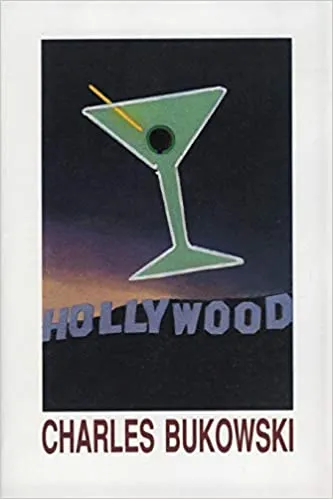In the realm of literature, few names evoke as much controversy and passionate admiration as Charles Bukowski. Often lauded as a champion of the working-class, a poet of the downtrodden, and a chronicler of raw, unvarnished existence, Bukowski’s prolific output, including his poignant poetry collection, “Love is a Dog from Hell,” continues to challenge and captivate readers. This exploration delves into Bukowski’s unapologetic voice, his enduring legacy, and how his work, often deemed “banned” or “offensive” by some, stands as a testament to literary freedom and the pursuit of authentic human experience.
The Enduring Allure of Banned Books and Uncensored Voices
The history of literature is replete with instances where works of profound insight or societal critique have faced the ire of censors. From Harper Lee’s Pulitzer-winning “To Kill a Mockingbird,” a seminal novel frequently challenged for its uncomfortable truths about racial injustice and social prejudice, to more recent controversies surrounding Dr. Seuss’s works, the impulse to control narratives and dictate what people “ought to read” remains a persistent shadow over creative expression. Yet, it is often these very acts of attempted suppression that draw readers to “forbidden texts,” sparking a deeper curiosity and a more critical engagement with the material. This inherent human desire for truth, however raw, fuels the appreciation for authors like Charles Bukowski, who refused to sanitize his observations of life. His unflinching portrayal of society’s underbelly, its vices, and its moments of unexpected beauty, aligns perfectly with the spirit of challenging prescribed “politically correct” paths.
 A black and white photograph of Charles Bukowski with a snarl on his face, smoking a cigarette
A black and white photograph of Charles Bukowski with a snarl on his face, smoking a cigarette
Charles Bukowski: A Literary Outlaw and His Unconventional Muse
Charles Bukowski carved a unique niche in the literary landscape, earning a reputation as a hard-living, hard-drinking writer whose prose and poetry resonated with a visceral honesty. He drew inspiration from the grittier aspects of life, translating personal struggles, observations of urban decay, and the complexities of human relationships into a distinctive, often confrontational, style. His work provides an uncensored mirror to a world many prefer to ignore, prompting readers to confront uncomfortable realities. Bukowski’s influence extends beyond his direct literary contributions, inspiring a lineage of artists who connect with his nihilistic yet profoundly human perspective. Characters like Hank Moody from Tom Kapinos’s “Californication” embody a similar spirit of the depraved yet inspiring social reject, hinting at Bukowski’s enduring archetypes.
The Genesis of Henry Chinaski: Bukowski’s Fictional Counterpart
Much of Charles Bukowski’s narrative prowess is channeled through his semi-autobiographical alter-ego, Henry “Hank” Chinaski. Chinaski’s journey through five core novels offers a raw, unfiltered look into a life lived on the fringes. Beginning with “Ham on Rye,” a powerful coming-of-age story that details Chinaski’s challenging youth, readers are introduced to the formative experiences that shape his cynical worldview. This is followed by “Factotum,” where Chinaski navigates a series of dead-end jobs and transient existences, all while nurturing his ambition to write. The episodic nature of these early novels perfectly encapsulates the struggle of an artist trying to survive in a world that often seems indifferent to his plight.
Then comes “Post Office,” arguably one of Bukowski’s most iconic works, chronicling Chinaski’s grueling tenure as a mail carrier. Here, amidst the monotony of the job, the seduction of women, and the constant battle against alcoholism, Chinaski strives to harness his experiences into literature, eventually penning his first novel. This period of his life vividly illustrates the tension between mundane reality and artistic aspiration. “Women” sees Chinaski experiencing a taste of success after his first novel, yet his inherent cynicism and self-destructive tendencies remain, leading to a series of chaotic relationships.
“Love is a Dog from Hell”: A Poetic Descent into Raw Emotion
Amidst his prose, Charles Bukowski’s poetry stands as a stark, powerful testament to his unique voice, and “Love is a Dog from Hell” is one of his most recognized collections. The title itself is a provocative statement, encapsulating Bukowski’s often-bleak yet utterly honest perspective on the most profound human emotion. This collection, published in 1977, delves into the turbulent and often painful facets of love, sex, loneliness, and the pursuit of connection in a fragmented world. Bukowski strips away romanticized notions, presenting love not as an ethereal, idealized state, but as a visceral, often destructive force, capable of both immense pleasure and profound suffering. His poems are marked by direct language, a lack of pretension, and an almost brutal clarity that resonates with readers who appreciate authenticity over sentimentality. The collection explores themes of disillusionment, the fleeting nature of passion, and the inherent difficulties of true intimacy, reflecting a lifetime of observed and experienced emotional turmoil.
 A black and white photograph of Charles Bukowski standing with a woman in a casual setting
A black and white photograph of Charles Bukowski standing with a woman in a casual setting
From Page to Screen: The Legacy of Barfly and a Final Bow
The journey of Henry Chinaski culminated in “Hollywood,” a novel that takes the character to Los Angeles, where he attempts to navigate the superficial and often absurd world of filmmaking while writing a screenplay. This fictional account mirrors Bukowski’s real-life experience penning the script for the 1987 feature film “Barfly,” starring Mickey Rourke and Faye Dunaway. The movie, like the novel, captures the essence of Bukowski’s depraved, careless, and emotionally volatile lifestyle, demonstrating his commitment to living and writing without compromise. After the raw intensity of his life and work, Charles Bukowski passed away on March 9, 1994, at the age of 74. Yet, even in his final weeks, his creative fire burned brightly. Black Sparrow Press released his final novel, “Pulp,” shortly before his death. In “Pulp,” Bukowski delivered a satirical jab at the pretentious world of writers and publishers, proving that even in the face of mortality, his irreverent spirit and sharp wit remained undiminished, dedicating his final work to “bad writing” as a final, defiant statement against literary pomposity.
 A black and white street photograph of the Hollywood sign in the distance
A black and white street photograph of the Hollywood sign in the distance
Conclusion: The Unapologetic Truth of Charles Bukowski
Charles Bukowski, through his novels and particularly through collections like “Love is a Dog from Hell,” left an indelible mark on literature by refusing to conform. His works, often scandalous and deemed unsuitable by censors, offer a vital glimpse into the human condition, stripped of all artifice. He celebrated the imperfect, the broken, and the beautiful chaos of everyday life, providing a voice for those often overlooked. For readers seeking raw honesty and a potent counter-narrative to sanitized versions of reality, Bukowski’s literary universe, with its unflinching portrayal of love as a “dog from hell,” remains an essential and profoundly moving experience. To truly understand the depths of human emotion and the complexities of life on the fringes, one must engage with the unapologetic truth found within his pages. Explore his works and discover why his “insensitivity” is, paradoxically, his greatest strength.
References:
- Barnes & Noble. Factotum by Charles Bukowski. https://www.barnesandnoble.com/w/factotum-charles-bukowski/1100609520?ean=9780061842412
